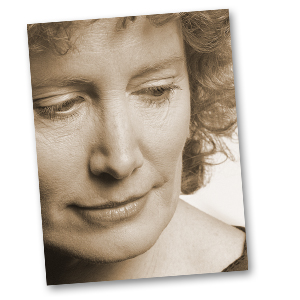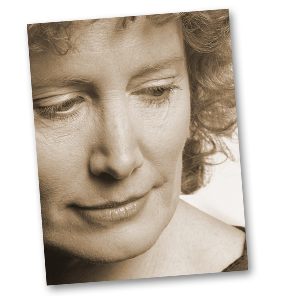| |
Women's
Health 
Women's health issues can be wide-ranging, confusing and sometimes
frightening, which is why we offer a little extra TLC during your
visit. Whether you have questions about pregnancy, mammograms
or menopause, our staff of women's health experts will help you
find the answers.
You are more than a patient. You are our partner in caring for
your body and your health. Through communication between you and
your caregivers, our compassionate medical team fosters a partnership
designed to help you take control of your health.
Obstetrics and Gynecology
852-6000
At Obstetrics & Gynecology of London, Inc., conveniently
located at 306 Lafayette Street, we recognize that women's health
care needs are special and complex. Your well-being is the main
focus of our medical practice. Women experience many unique changes
throughout life which affect reproductive, sexual and overall
general health. Our staff will provide you with the best health
care available to manage the changing needs of your body.
Women of all ages can experience the following services in the
most easily accessible, technologically-advanced Madison County
location for women's health care:
•
Annual Exams
• Obstetrical Care
• Family Planning
• Infertility
• Ultrasound
• Gynecological Surgery
• PMS Disorders
• Menopause
• Laser Surgery
• Urinary Incontinence
• Advanced Endoscopy
• Bone Densitometry*
• Mammography*
*Service conducted at the Madison County Hospital Specialty Imaging
Suite located in the Park Avenue Medical Building.
Bone Densitometry and Osteoporosis 
845-7222
Osteoporosis is a potentially crippling disease characterized
by the loss of bone tissue and a susceptibility to fracture. It
afflicts an estimated 25 million Americans, 80% of whom are women.
Osteoporosis is often called the "silent disease" because it does
not produce any symptoms until a fracture occurs. Approximately
50% of women over the age of 50 are at risk of sustaining an osteoporotic
fracture.
Today, doctors are better equipped to detect and treat bone loss
in its earliest stages, so as to prevent the disease or lessen
its impact. Also, several drug therapies now on the market have
been shown to be clinically effective in slowing down or reversing
the bone-loss process.
Just as no physician would prescribe a medication for hypertension
without first taking the patient's blood pressure, the diagnosis
and treatment of osteoporosis should begin with a measurement
of the patient's bone mass or bone density. Bone densitometry
uses an advanced technology called Dual-energy X-ray Absorptiometry
(DXA) to safely, accurately, and painlessly measure bone density
and the mineral content of bone. During a comprehensive bone evaluation
with DXA, the patient lies comfortably still on a padded table
while the DXA unit scans one or more areas, usually fracture-prone
areas such as the spine or hip.
Radiation exposure during bone densitometry is less than the radiation
exposure during a coast-to-coast airline flight. The entire process
takes only a few minutes to complete, depending on the number
of sites scanned. It involves no injections or invasive procedures,
and patients remain fully clothed.
A report will be sent to your doctor that consists of your density
measurements and recommendations for treatment or prevention of
osteoporosis and bone loss.
To learn more about osteoporosis testing and treatment options,
contact the Madison County Hospital Specialty Imaging Suite at
(740) 845-7222 or click on Contact Us.
Mammography 
845-7222
Statistics show that one out of every eight women will get breast
cancer sometime in her lifetime. That is why doing everything
you can to detect problems early is so important.
Widespread use of regular screening mammography has contributed
to recent improvements in the breast cancer survival rate. The
five-year survival rate after treatment for early-stage breast
cancer is 96 percent.
A screening mammogram is a safe, low-dose x-ray of a breast compression
that can reveal breast cancer at its earliest stages. Mammograms
are recommended annually for women above the age of 40 and sometimes
for women younger than 40 who have high risk factors, such as
a family history of breast cancer. The highest instances of breast
cancer occur in women over 50, but the types of cancers that occur
in the older age groups are usually slower growing, so the survival
rate among these women is greater, especially when caught early.
Madison County Hospital offers experienced, gentle mammographers.
Radiologists from Mt. Carmel are specially trained in reading
mammograms. Turnaround time for reports is short allowing women
to receive their results in a very timely manner.
Nine
things you can expect when you get a mammogram at Madison County
Hospital.
1.
Medicare, Medicaid and most private health insurance plans cover
mammogram costs or a percentage of the cost. To ensure coverage,
check the date of your last screening mammogram. Medicare and
some insurance companies will not pay for an exam if it has been
less than 365 days since your last screening mammogram.
2. The procedure requires you to
undress above the waist. A gown will be provided for you to wear.
3. A technologist will be present
to position your breasts for the mammogram. Your breasts will
be compressed and x-rayed one at a time. The technologists at
Madison County Hospital are women. You and the technologist are
the only ones present during the mammogram.
4. The procedure takes about 20 minutes.
The actual compression only lasts a few seconds.
5. You may feel some discomfort when
your breasts are compressed, but you should not feel pain. To
help lessen the discomfort, don't have a mammogram just before
or during your menstrual period. The best time to schedule an
exam is one week after your period ends. If you experience pain
during the mammogram, tell your technologist.
6. Our mammography suite is required
to send your results to you within 30 days. You will be contacted
within 5 working days if there is a suspected problem with the
mammogram.
7. Only 1 or 2 mammograms out of
every 1000 lead to a diagnosis of cancer. Approximately 10% of
women will require additional mammography. Don't be alarmed if
this happens to you. Only a small percent of those requiring additional
mammography will require a biopsy. Of those requiring a biopsy
approximately 80% turn out to be non-cancerous.
8. If you are a woman and age 40
or over, you should get a mammogram every year. You can schedule
a mammogram at Madison County Hospital by calling 740-845-7100.
9. If your last exam was performed
at a different facility, prior to your mammogram, call that facility.
Ask that your previous films be sent to Madison County Hospital.
On the day of your mammogram please remember:
•
You
will need to remove your clothes from the waist up, so wear a
two piece outfit.
• Do
not wear any perfume, powders or deodorant on the day of your
exam. If you must wear deodorant on the day of your exam, please
tell the technologist prior to starting.
•
If you tend to have tender breasts, abstain from caffeine and
chocolate 2 - 3
days before your exam.
For more information, call 845-7222 or click on Contact Us.
|
|





